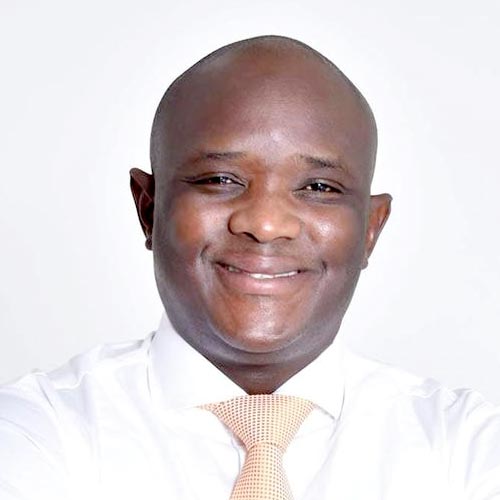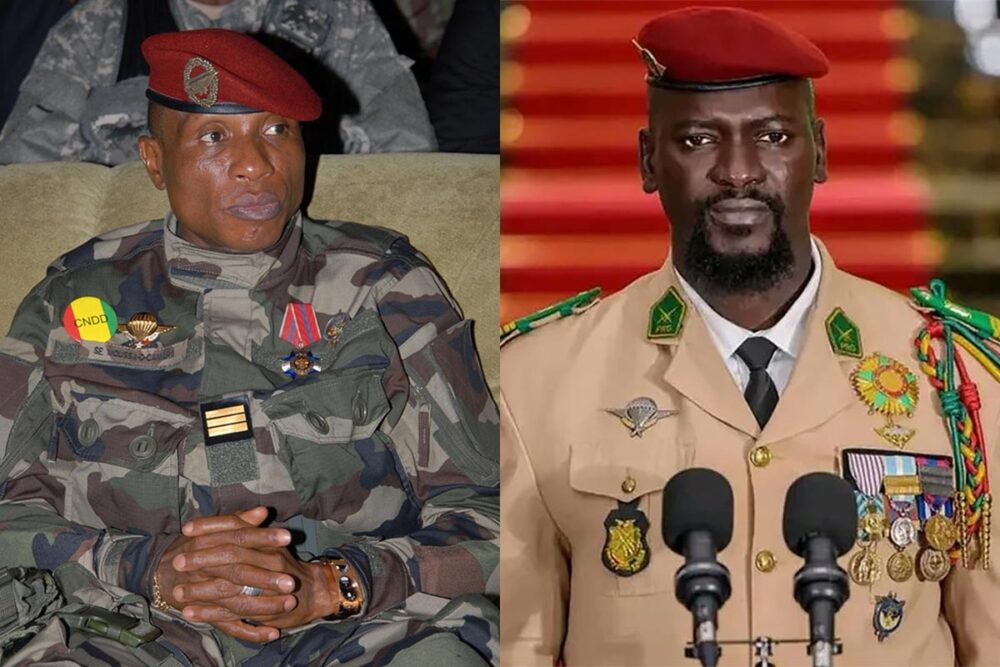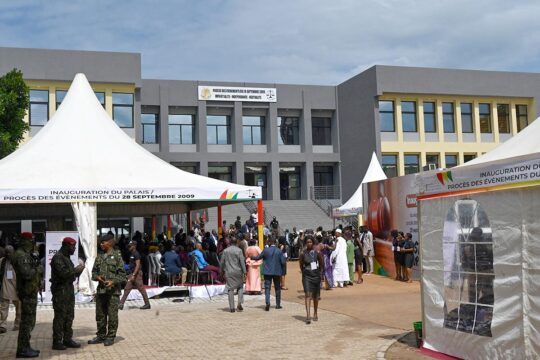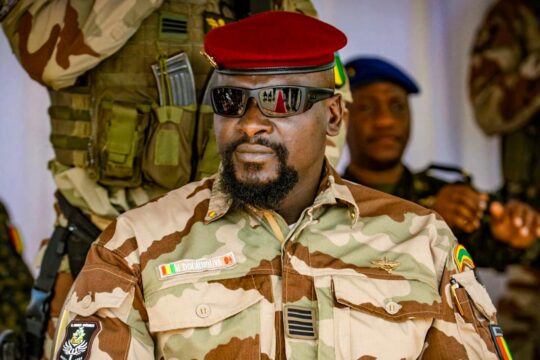JUSTICE INFO: What political factors explain the coincidence of these two announcements, the State's décision to assume responsibility for compensating the victims of the Conakry stadium massacre in 2009, and the pardon of Captain Moussa Dadis Camara?
KABINET FOFANA: Indeed, the pardon came on the heels of the announcement that a process would be set up to compensate the victims of 28 September, which was one of the recommendations of the court’s ruling. I think that first of all, there was a desire to respond to a strong demand made by civil parties, but also by the judges. I think that the President of the transition [General Mamadi Doumbouya, in power in Guinea since a coup d'état in 2021] wanted to kill two birds with one stone, even if this naturally raised questions about the validity of the pardon, since, as far as the lawyers and other human rights organisations are concerned, an appeal is currently being lodged against the first instance judgment.
Are there political overtones behind this? Yes, of course. Both the victims and those who support Captain Dadis are important public opinion. Whatever is said, Captain Dadis remains the most important political figure in Forested Guinea [the south-eastern region of Guinea]. It is therefore quite possible that electoral, even political, overtones could explain these two decisions, particularly the one pardoning Captain Moussa Dadis Camara.
What electoral deadlines lie ahead for Mamadi Doumbouya and what alliance is he trying to build to support his expected candidacy? What does the Dadis Camara card represent in the current context that would justify his pardon and release?
Today, it is increasingly clear that General Mamadi Doumbouya will run [in the presidential election promised for 2025]. A large coalition of political parties has formed and is calling for him to be a candidate. Captain Dadis is an extremely important figure. This remains to be seen, but his pardon would be a motivating factor in voting among the Forested Guinea's electorate or among those who are sympathetic to him. It should be pointed out that Forested Guinea is not a fixed electorate, but a very fragmented one, due to sometimes very ethnic considerations, since this part of Guinea is made up of many ethnic groups. And we know that leaders are often formed on the basis of such considerations. So we'll see whether the pardon of Captain Dadis will crystallize the electorate, if President Mamadi Doumbouya runs.
You mentioned ethnic groups. What is the weight of the Foresters in the army and on the current political scene?
On the political scene, Forested Guinea is a very important electorate. In fact, it is the electorate that, in addition to Maritime Guinea, has become a kind of kingmaker in recent years. It's a kind of ‘swing state’, as we would say in the United States. As far as the army is concerned, the foresters make up a large part of the ‘Grande Muette’ [the army], and the proportion of young people from this region in the army increased when Captain Dadis came to power in 2008.
Is it conceivable that the seven other people convicted in the 28 September trial [Moussa Tiegboro Camara, Aboubacar Diakité known as Toumba, Marcel Guilavogui, Claude Pivi, Blaise Goumou, Mamadou Aliou Keïta, Paul Mansa Guilavogui] could also benefit from a presidential pardon?
Yes and no. Public opinion is saying that there has been preferential treatment. So I think there is a strong possibility that Toumba [Aboubacar Diakité, Dadis Camara's former aide-de-camp and head of the presidential guard at the time of the massacre] and others will be pardoned. But will this happen automatically? By releasing them all today, we must avoid trampling the whole point of trying these massacres.
We mustn't forget that the primary objective is to judge an event that has been described as a crime against humanity and that has aroused a great deal of interest. For the first time, a national court was able to try a case of such magnitude. I think we have to be careful not to trivialize these massacres, because they represent a dark chapter in our country's history.
What about the case of Claude Pivi, whose escape in November 2023 highlighted the influential contacts he retained within the army, before he was arrested and then extradited from Liberia last September?
The case of Colonel Pivi [former Minister of Presidential Security at the time of the massacre] is a very specific one. But in terms of importance, the captain [Dadis Camara] carries more weight. That's why I'm not very sure that pardons are going to be granted at the drop of a hat. I think it's a risk that the authorities, or rather the president of the transition who is the one pardoning people, would not take.
The Guinean organisation of defence of human rights (OGDH) said it was outraged by the pardon, especially as the appeal procedure had not even been completed. It is “an attack on the honour and dignity of the victims,” they said, as well as a “violation of the most basic principles of proper administration of justice”. How can President Doumbouya manage the contradiction between supporting and funding a historic trial and what the opposition National Front for the Defence of the Constitution has described as “cynical political manipulation”?
There is an outcry that puts into perspective the difficulty of understanding the President's pardon of Captain Dadis. Like the OGDH, you have the United Nations, the International Federation for Human Rights (FIDH), etc.: all these organisations remain indignant today. For them, there is a bitter taste that this pardon has come on the heels of a historic trial hailed by international public opinion.
This is where there is still a lot to be done in terms of education. That's why I don't think other pardons should be granted in the same breath, because that would exacerbate the outcry. One wouldn't want to take the risk of further aggravating these claims, when one knows that the judgement in the 28 September massacre trial was a positive step for the Conakry regime, and one that was hailed internationally. I think there is a need for education so that one does not once again drain of all its sap a historic trial that has been hailed by the entire international community.
Is this pardon the programmed end of the criminal justice process in favour of national reconciliation and payment to the victims?
We are now faced with a situation where we told ourselves ‘that's it, we've judged the case’, and then a pardon intervened in the meantime, which has, let's say, put a bit of a damper on the judicial machinery. But will that be the end of it? Are we going to end up with a form of transitional justice or national reconciliation, after having served, or rather exhausted, all the legal avenues available in this area? This is something that we will have to observe, that we will have to follow, to see what kind of turn this extremely important case for Guinea will take.

Kabinet Fofana is a political scientist. Director of the Guinean Association of Political Science, a Guinean think tank, he has directed the production of numerous studies on the perceptions and opinions of Guineans regarding political and social life and regularly analyzes Guinea’s political news in the international media (France 24, Jeune Afrique, Africa 24, Radio France Internationale) as well as for the Groupe Fréquence Médias. He is co-author of the chapter “Loyalties and military betrayals. A spatialized reading of power relations within the Guinean army”, published in Politique africaine in 2023.






